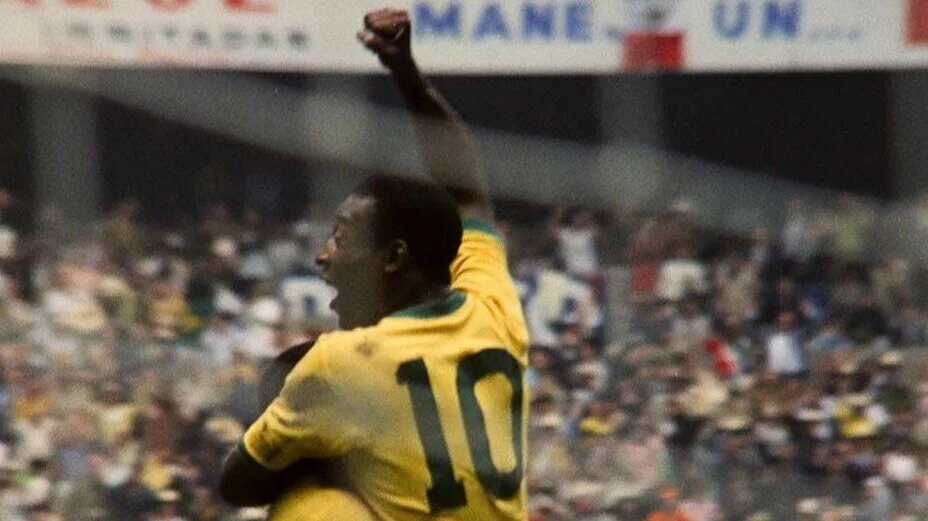Pelé
A documentary that unavoidably invites a comparison that shows up its limitations.
Anybody who sets out to make a biopic about a sporting celebrity is faced with the need to make choices. This is very clearly illustrated if one makes a comparison between this new documentary by Ben Nicholas and David Tryhorn and the one made in 2019 by Asif Kapadia featuring another famed footballer, Diego Maradona. When that film was made it was, like Pelé, dealing with a living champion so one question that arose in each case was to what extent the man himself would be asked to contribute. Both films contain much archive material of their subject whether on or off the pitch, but for Pelé Nicholas and Tryhorn in addition invited the man himself, now eighty-years-old, to appear in person. Seen in a wheelchair, he is interviewed about his life while his comments extend to his recollections about particular matches seen on accompanying newsreels.
But personal involvement and the form it should take is only one issue to be decided. What balance will there be between the sporting career and the personal life? What time scale will be featured? Both footballers came from poor backgrounds that are touched on by the filmmakers, but Kapadia, despite aiming at a portrait in depth concentrated on a relatively short period of time (1984 to 1991). In Pelé the range is wider by several years, (it is centred on 1958 to 1970) but, that being the time when as a footballer he rose from star player to national hero, it is the sport itself that is by far the overriding concern.
A different view might reasonably have been taken. After all, in addition to his World Cup triumphs and his sporting honours, Pelé was picked out by Time magazine as one of the 100 most important people of the 20th century and in 1994 became a goodwill ambassador for UNESCO. Even so Pelé firmly cuts off at 1970 so none of Pelé's children (he had eight) come into it and only his first wife is seen. What cannot be avoided because they belong to this period although not related to his activities on the field are those questions about Pelé which for some make him a controversial figure: was he wrong to be politically neutral when Brazil was undergoing the violent dictatorship of Emílio Garrastazu Médici and should he have been more of an activist on behalf of those who like him were black? Such matters do come up but Pelé gets an easy ride, a fact that will irritate some more than others.
A range of fellow players are seen here together with journalists and others including the musician Gilberto Gil, but what they say is always too brief to go deep and only one family member, Pelé's sister Maria Lúcia Nascimento, appears. Pelé is a film with a theme in that it suggests that Pelé's work in making Brazil a World Cup leader gave heart to his country thus justifying the view that he is a national treasure. Nevertheless, the chosen approach and the film's extensive coverage of the 1970 World Cup make this a work primarily for audiences who love football whereas Diego Maradona has a far wider appeal than that. It is also the case that technically and aesthetically Kapadia's film is by far the greater achievement although on a more modest level Pelé is competent enough.
MANSEL STIMPSON
Featuring Pelé, Maria Lúcia Nascimento, Juca Kfouri, José Trajano, Gilberto Gil, Paulo César Vasconcellos, Fernando Henrique, Roberto Maylaert, Mário Zagallo, Jairzinho, Rivellino, Amarildo.
Dir Ben Nicholas and David Tryhorn, Pro Ben Nicholas and David Tryhorn, Ph Michel Latham, Ed Matteo Bini, Andrew Hewitt and Julian Hart, Music Antônio Pinto with Gabriel Ferrara and Felipe Kim.
Pitch Productions-Netflix.
108 mins. UK 2021. Rel: 23 February 2021. Available on Netflix. Cert. 12.


